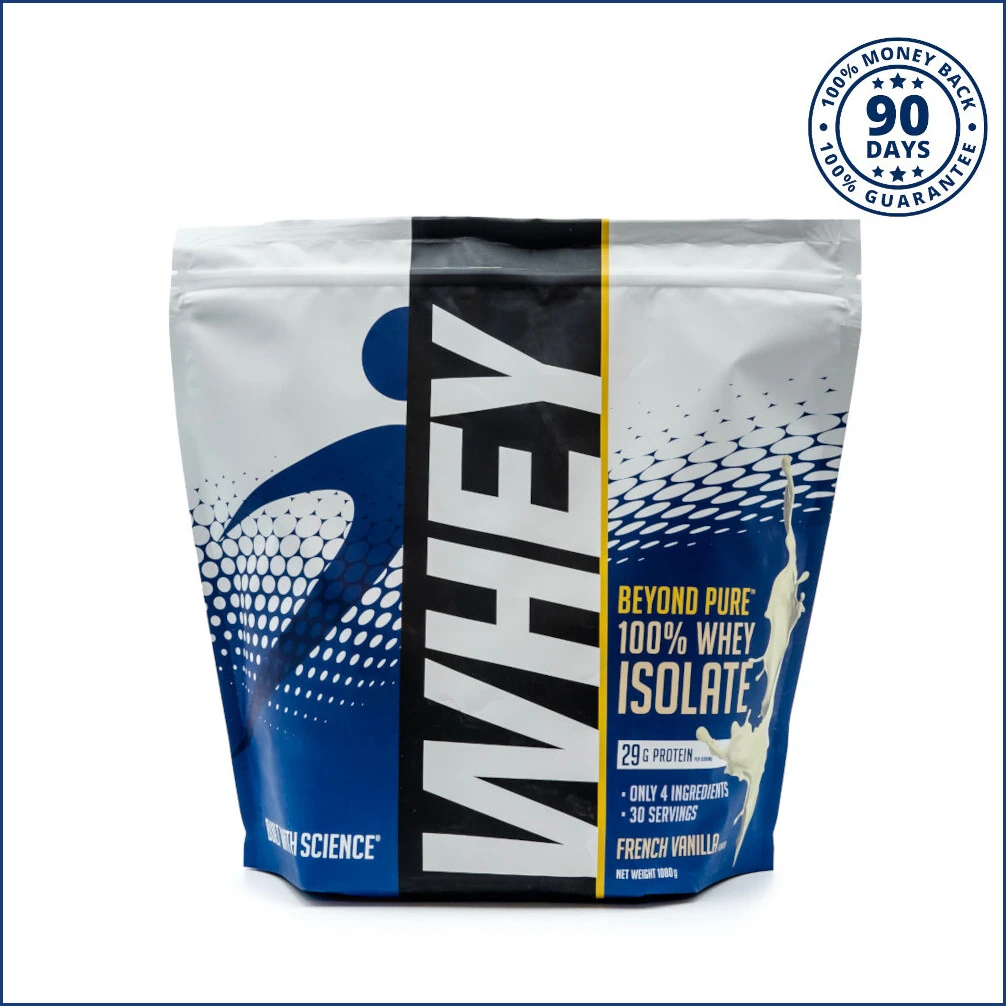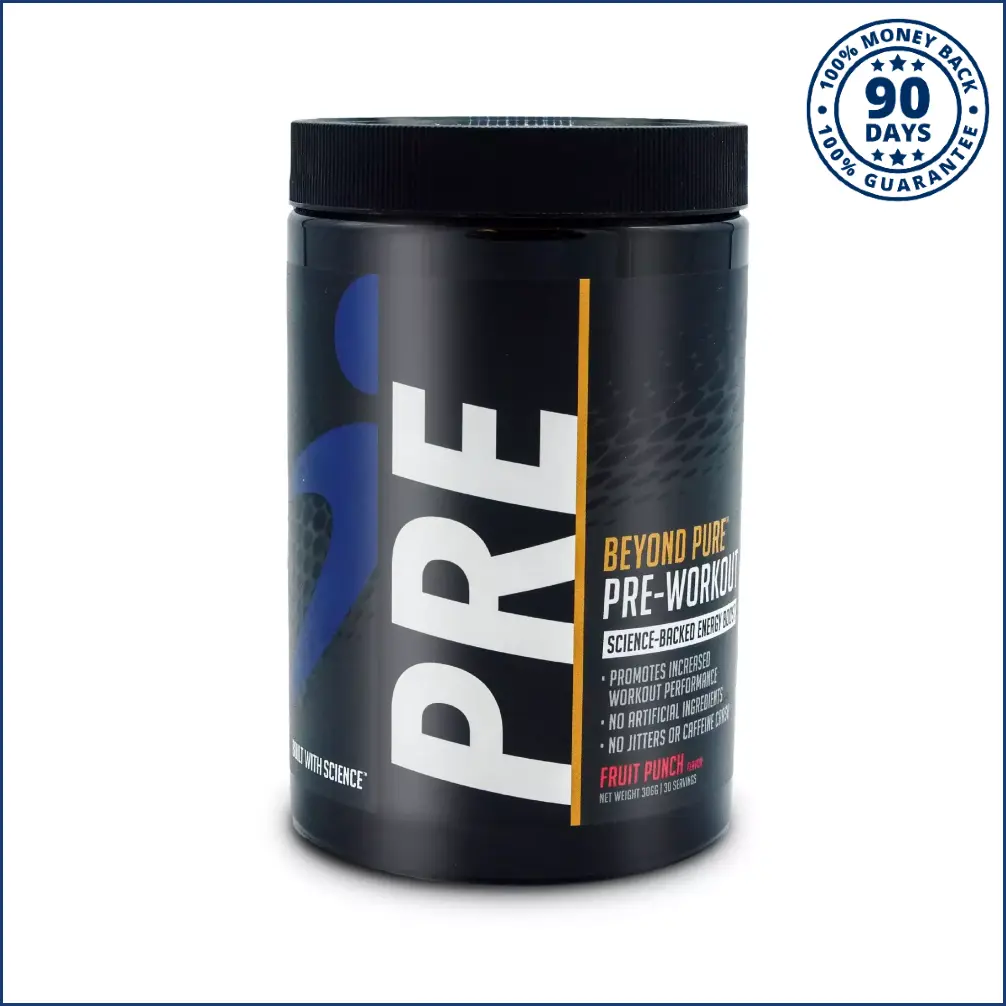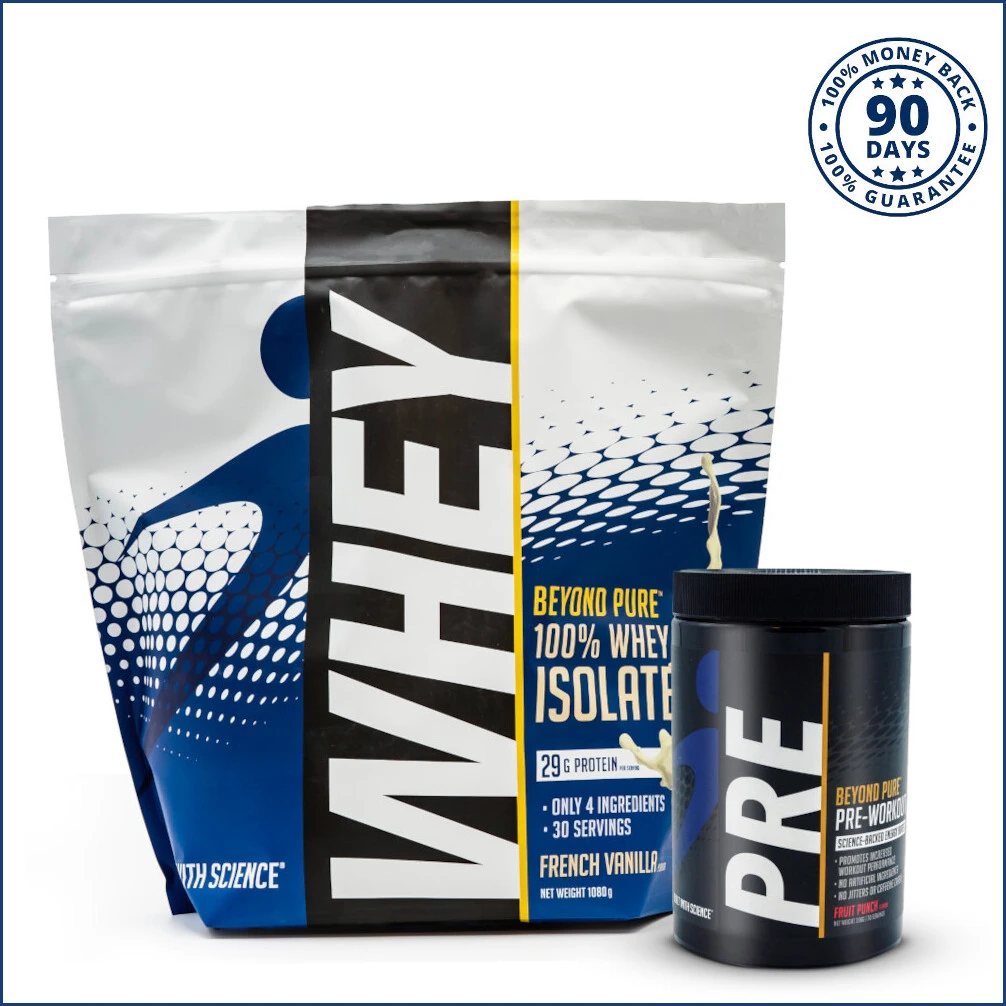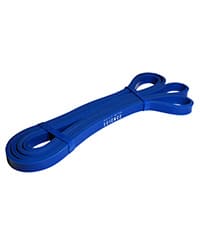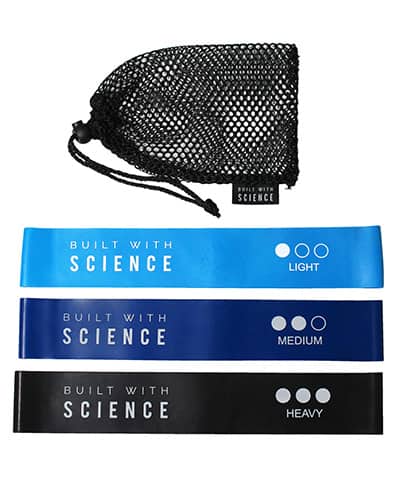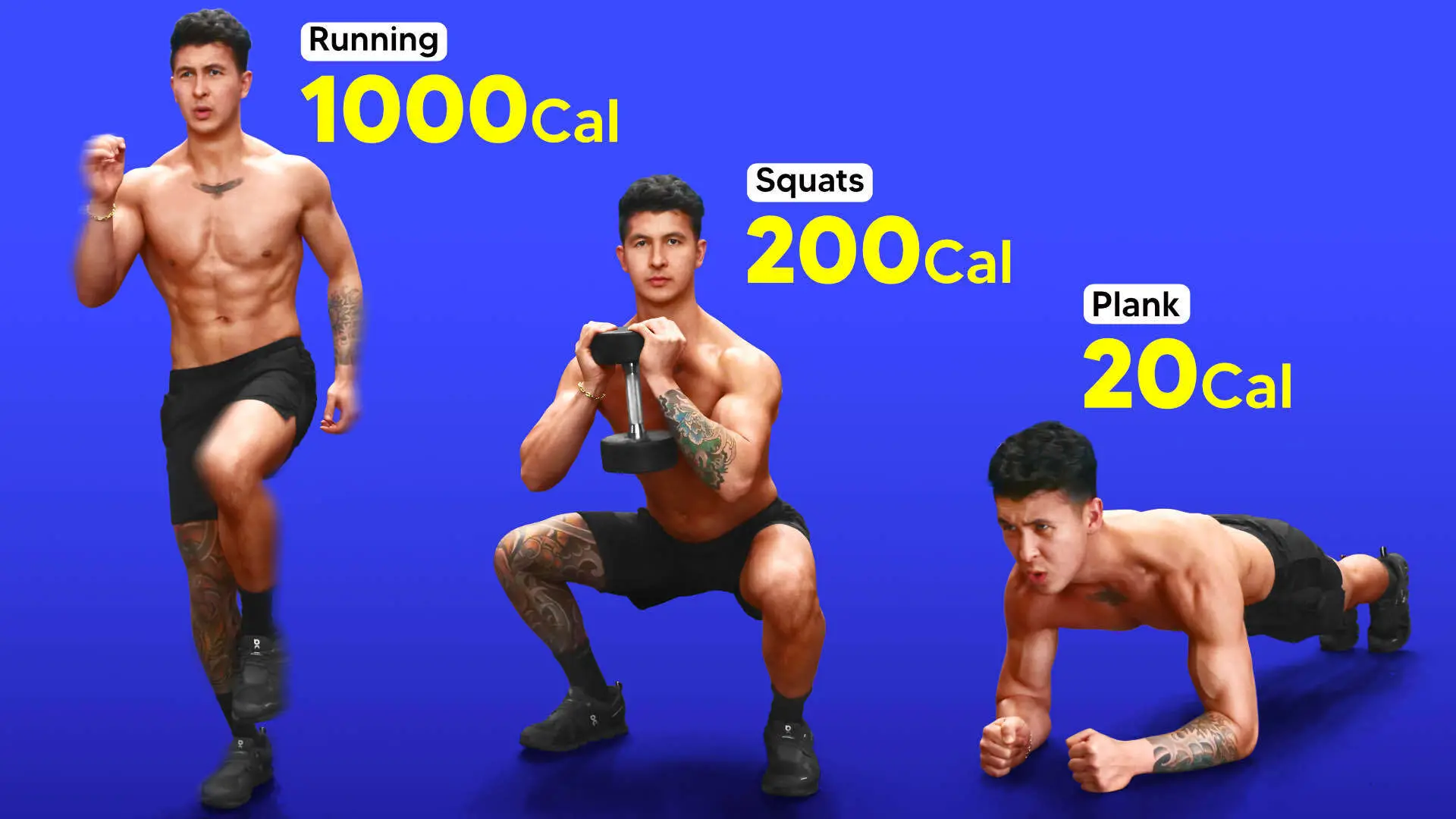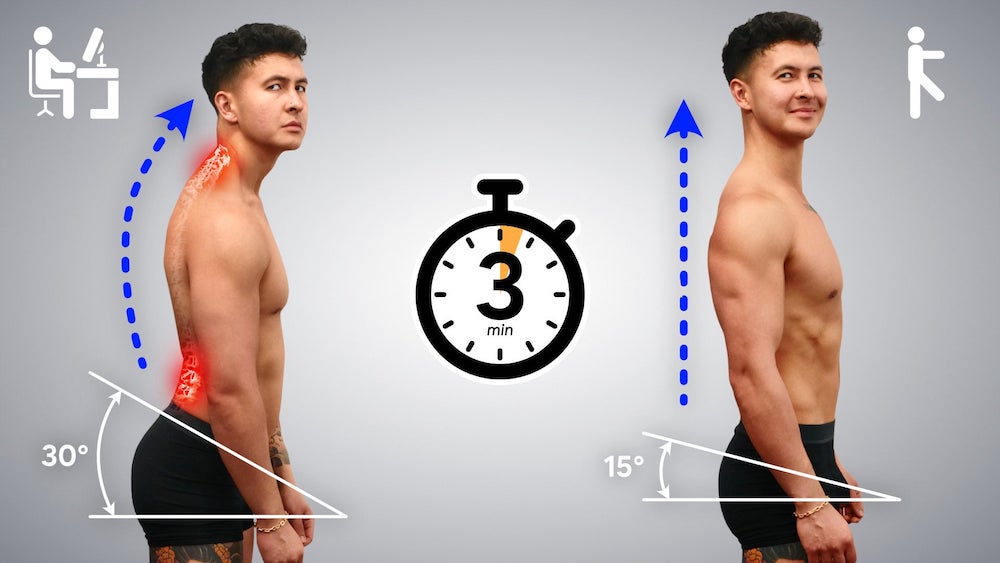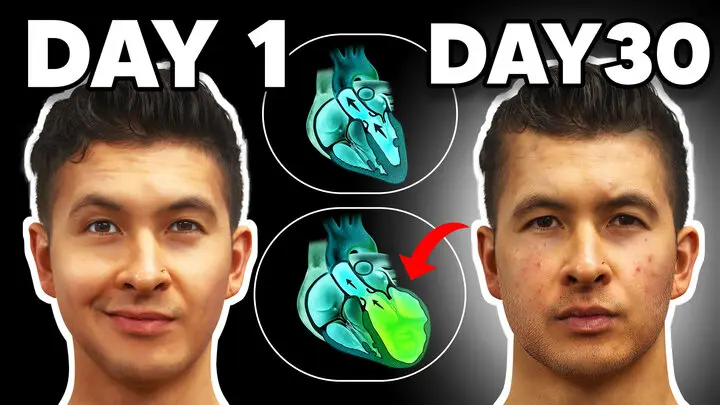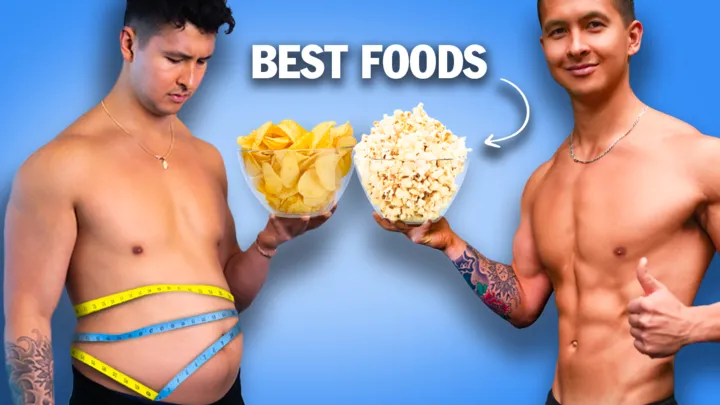
Foods To Lose Belly Fat | Built With Science
What Are The Best Foods To Lose Belly Fat?
Lemon water, cayenne pepper, apple cider vinegar, chia seeds, and kombucha — the top 5 foods Google said I should eat to lose belly fat.
While these will lead to the most uncomfortable dump of your life, ultimately, they won’t do anything to get rid of belly fat.
Let's cut through the BS and look at the real science behind the foods to lose belly fat that can actually help you. There are 5 of these foods worth talking about when it comes to losing belly fat.
There are 5 of them worth talking about.
#1: Low-Calorie Density Foods To Lose Belly Fat
Number 1 has to do with something called calorie density.
Your body is designed to hold onto your belly fat. So, the only way to get rid of it is to adhere to a calorie deficit for long enough. Simply put, you need to eat less.
But there is a workaround.
You see, studies have shown that feeling full is more likely to make a person stop eating than the calorie content of the food consumed.
And there’s a group of foods known as “low-calorie density foods”.
These are foods that contain a ton of weight and volume for relatively few calories.
And studies have shown that people who eat these foods consume fewer calories every day but end up eating more actual food than those who don’t eat these foods.
Think about it. You can eat:
- 500 calories of Oreos and actually get even more hungry after, or
- 200 strawberries ... which would definitely make you sick after (if you stomached all that in the first place)
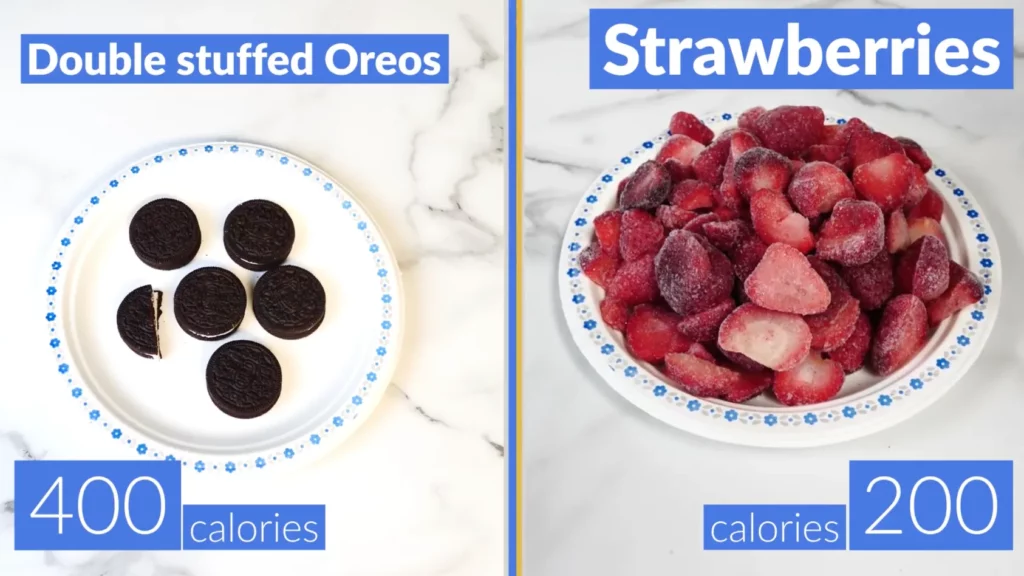
What Are The Best Low-Calorie Density Foods To Lose Belly Fat?
Well, there’s lots to pick from.
For example, here's what 200 calories of strawberries look like.
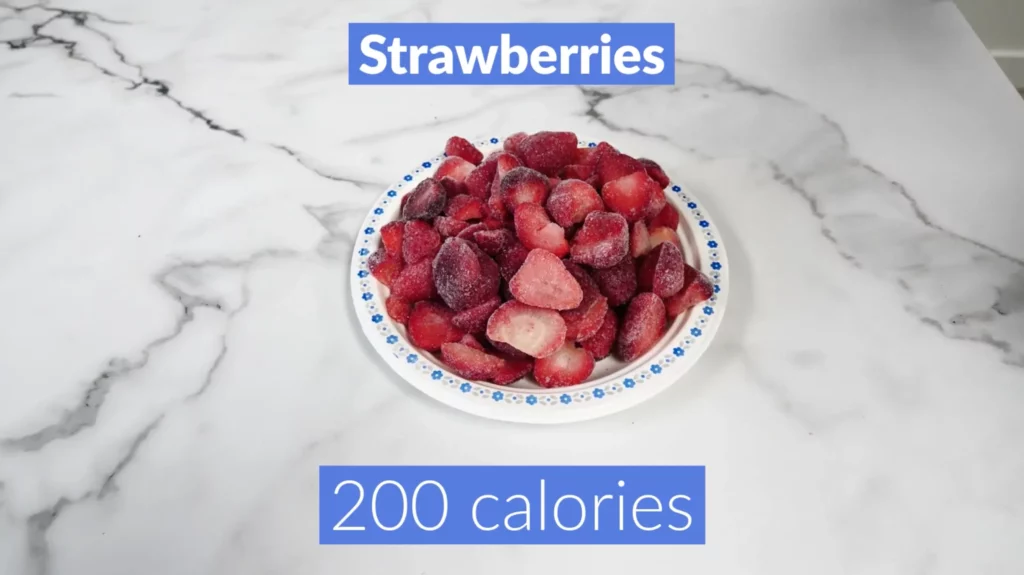
Below, you'll also see what 200 calories of oranges, watermelon, spinach, zucchini, mushrooms, broccoli, fat-free popcorn, carrots, green peas, boiled potatoes, shrimp, and ground chicken breast look like.
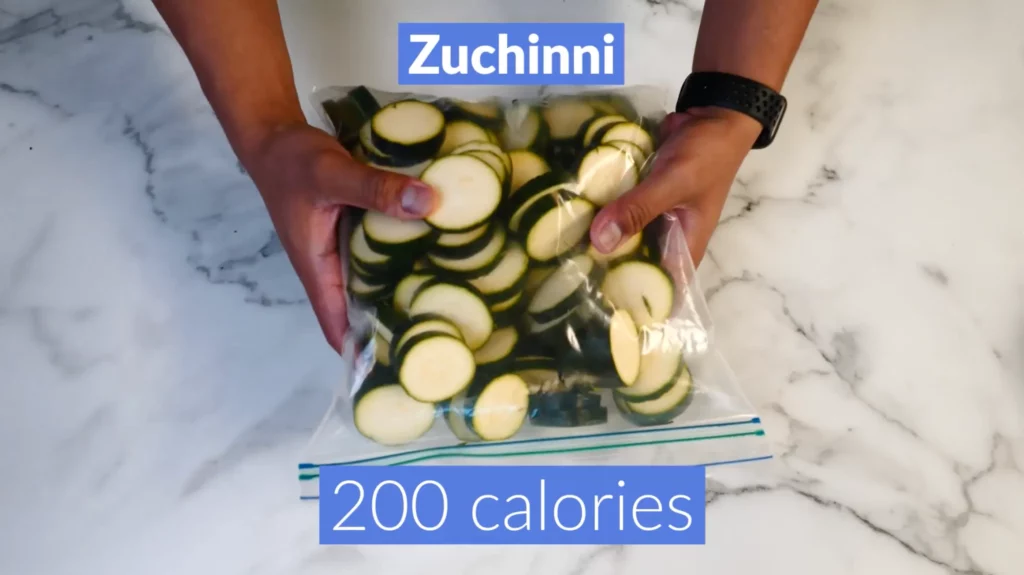
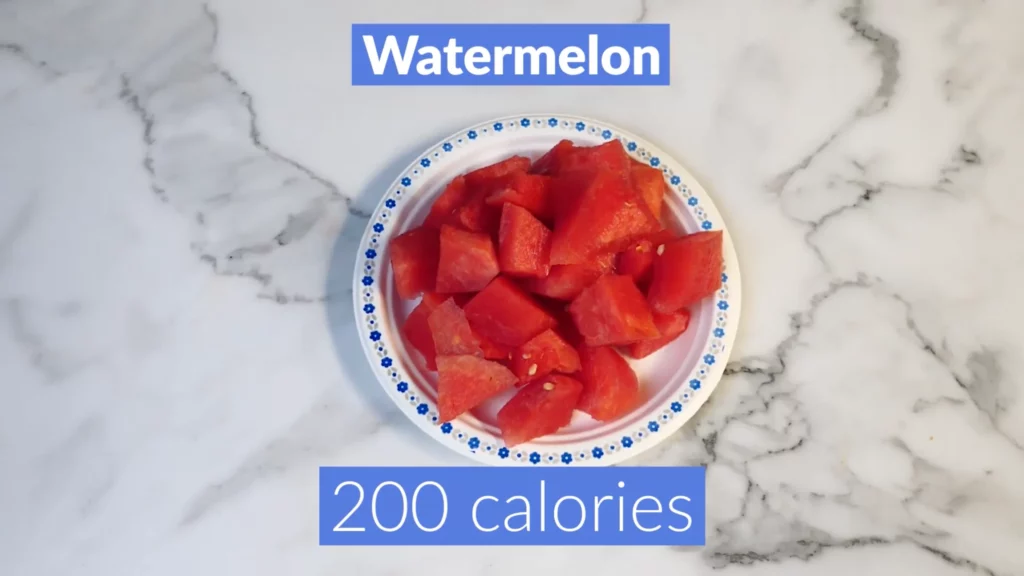
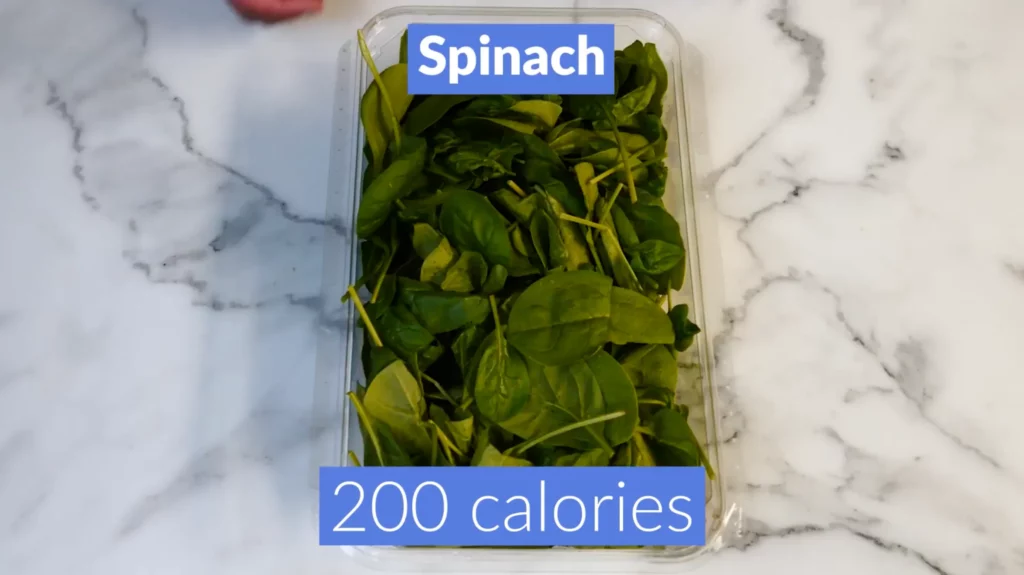
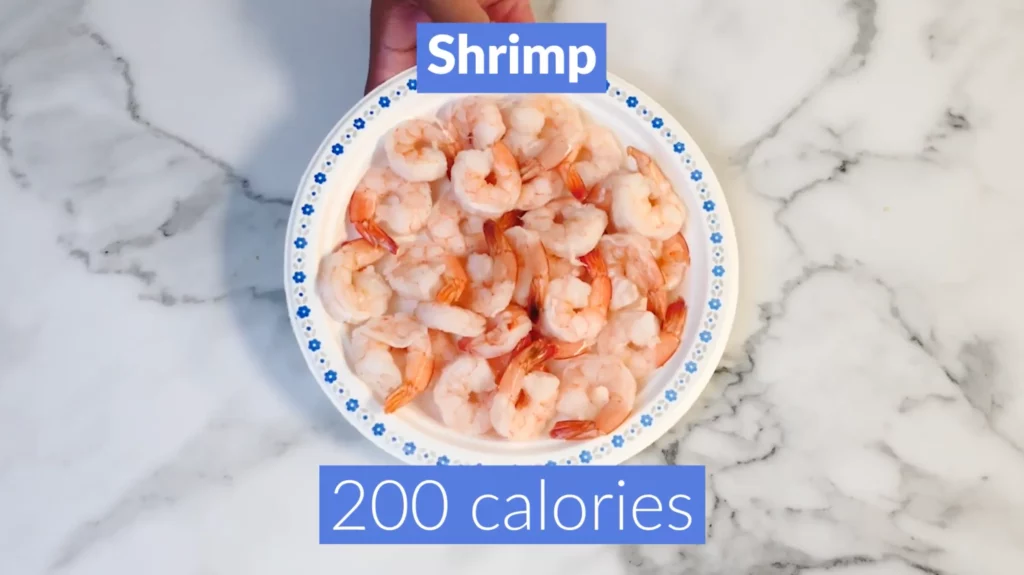
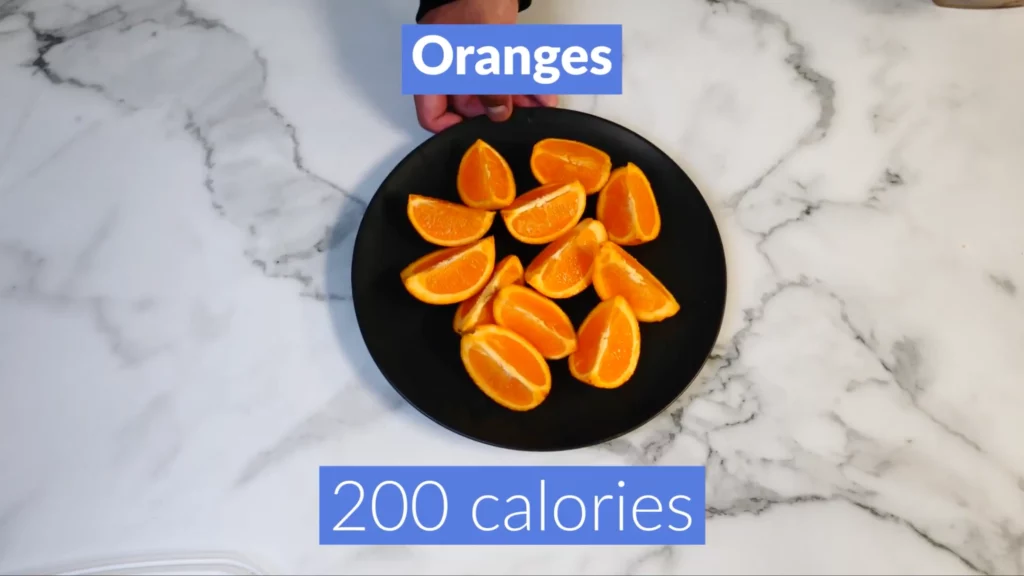
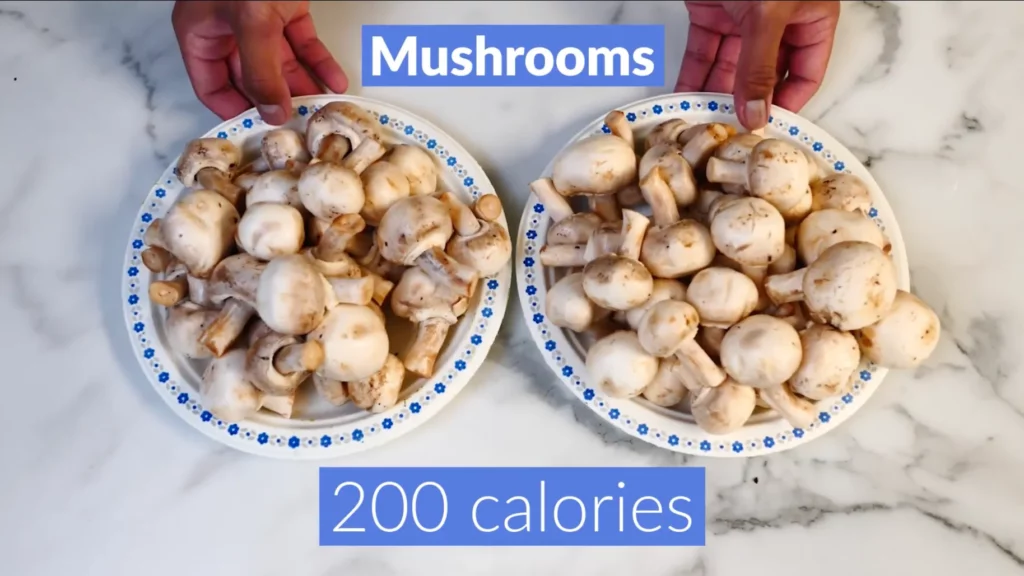
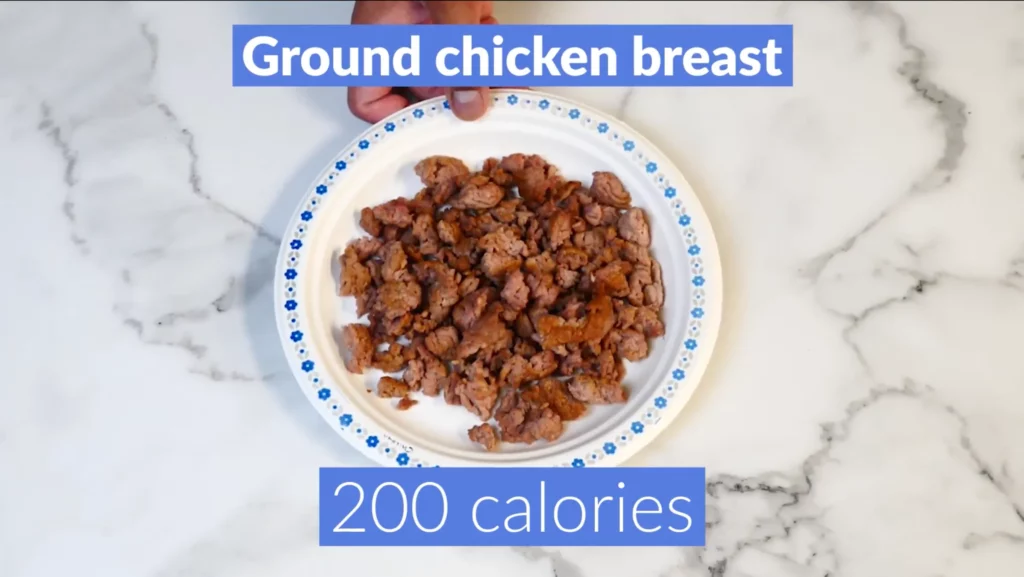
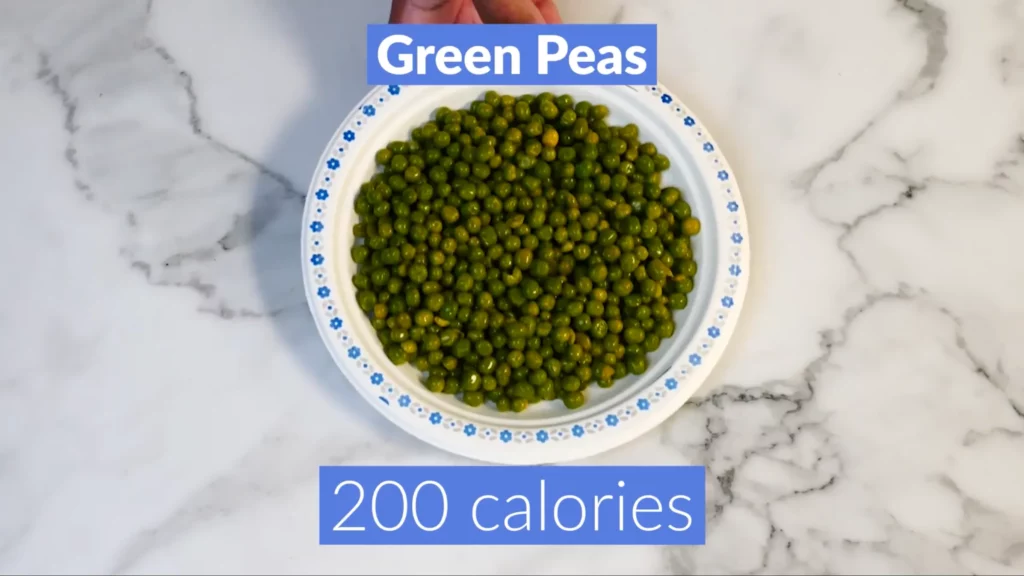
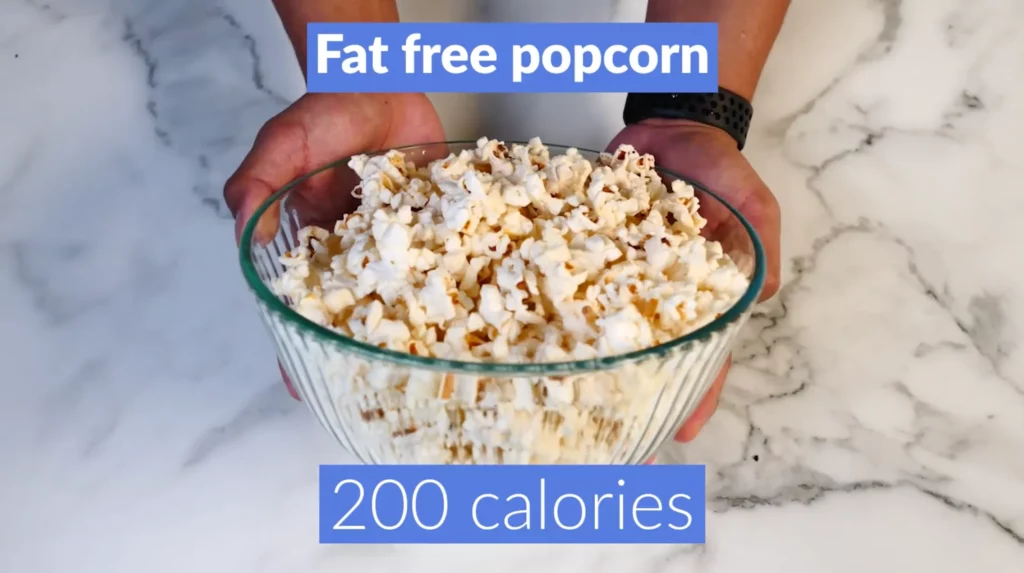
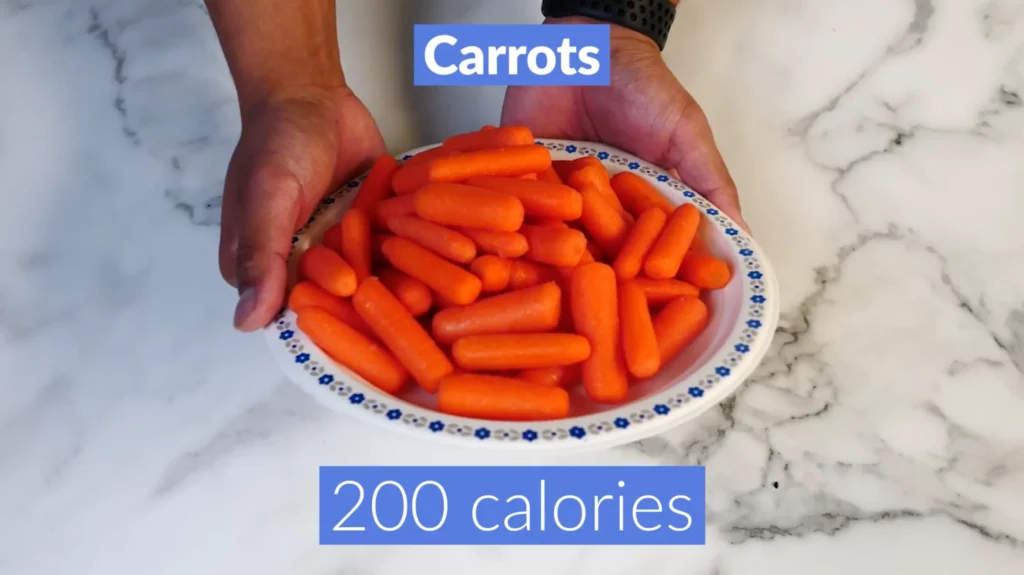
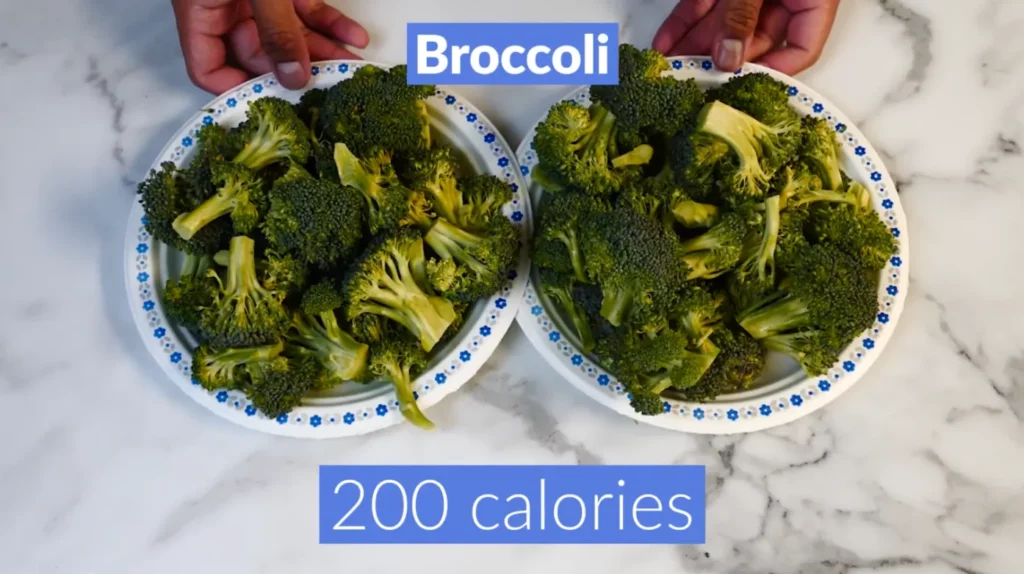
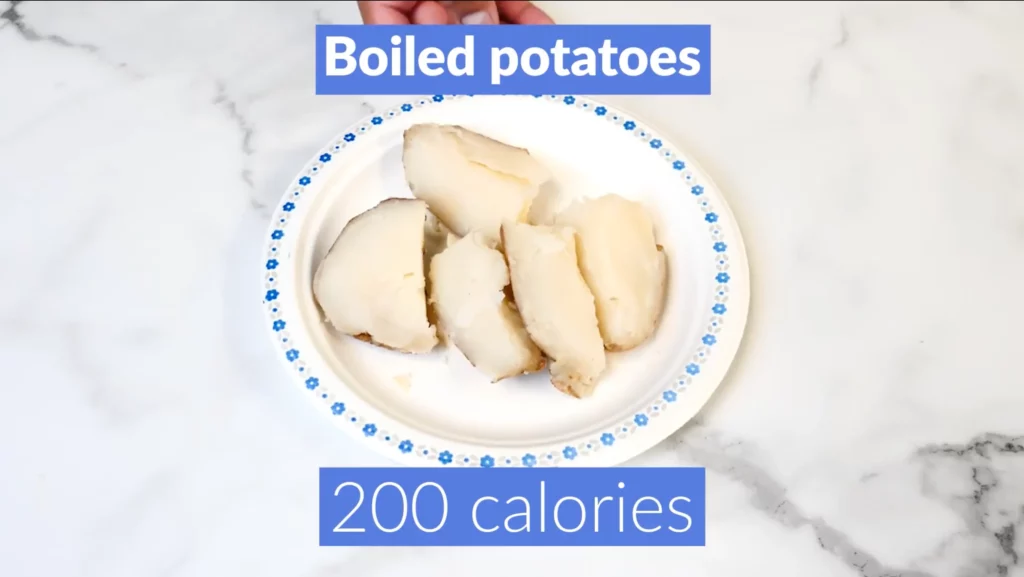
Basically, most fruits, vegetables, and low-fat foods classify as low-calorie density foods.
On the other hand, here's what 200 calories of a higher calorie-density food like granola looks like.
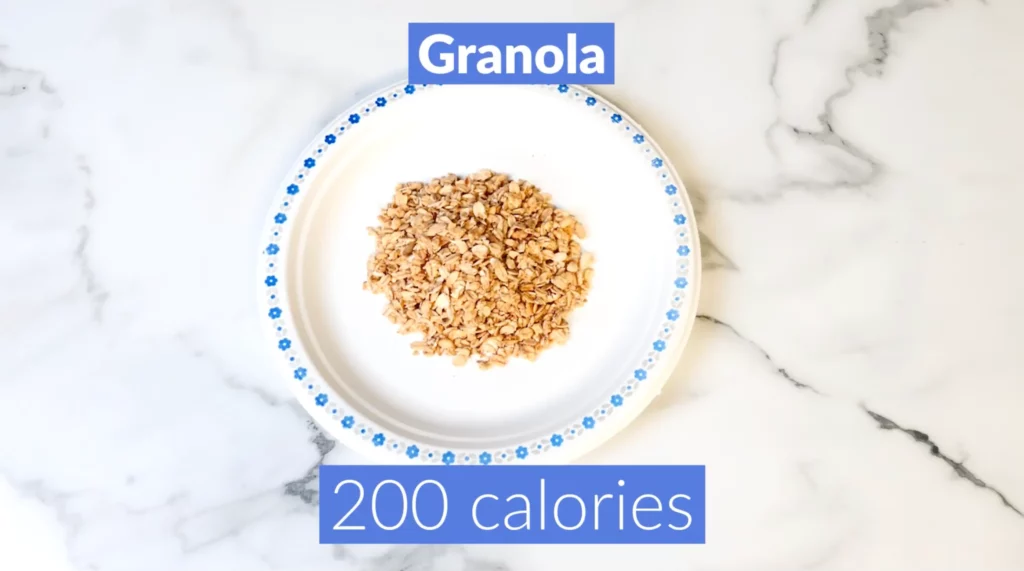
And here’s 200 calories worth of trail mix, pork chop, peanut butter, muffins, ice cream, ground beef, cheese, and chocolate covered pretzels.
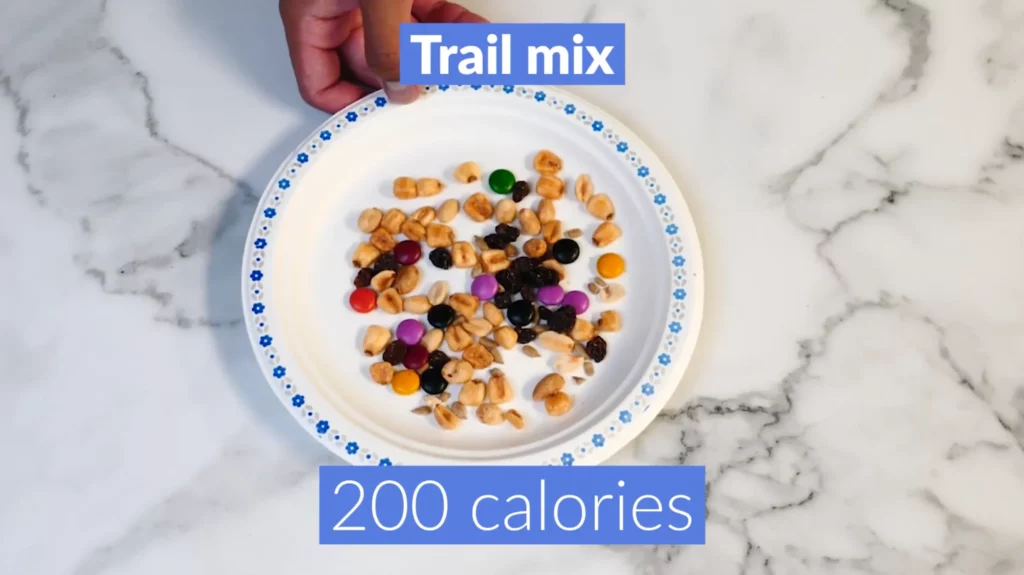
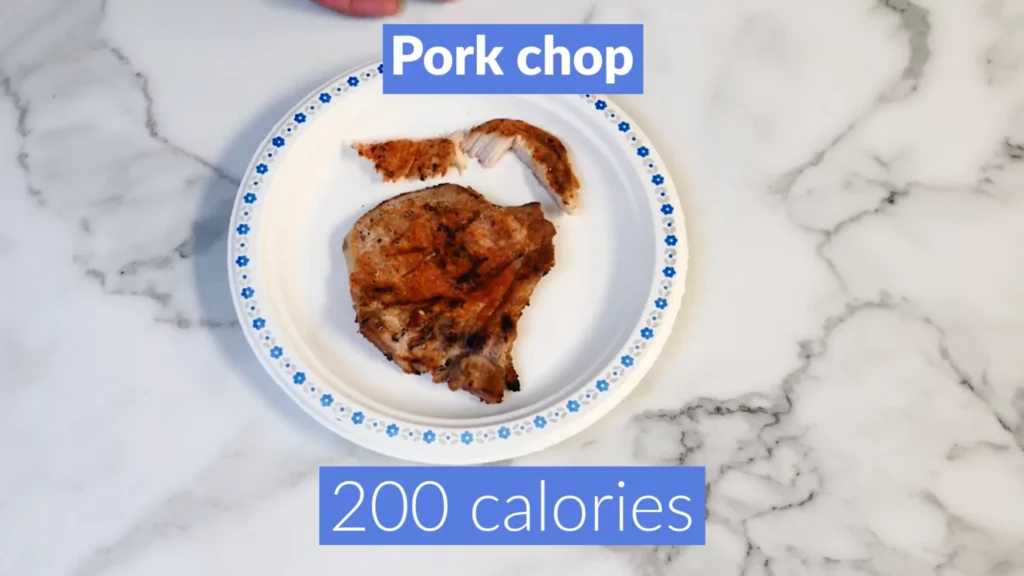
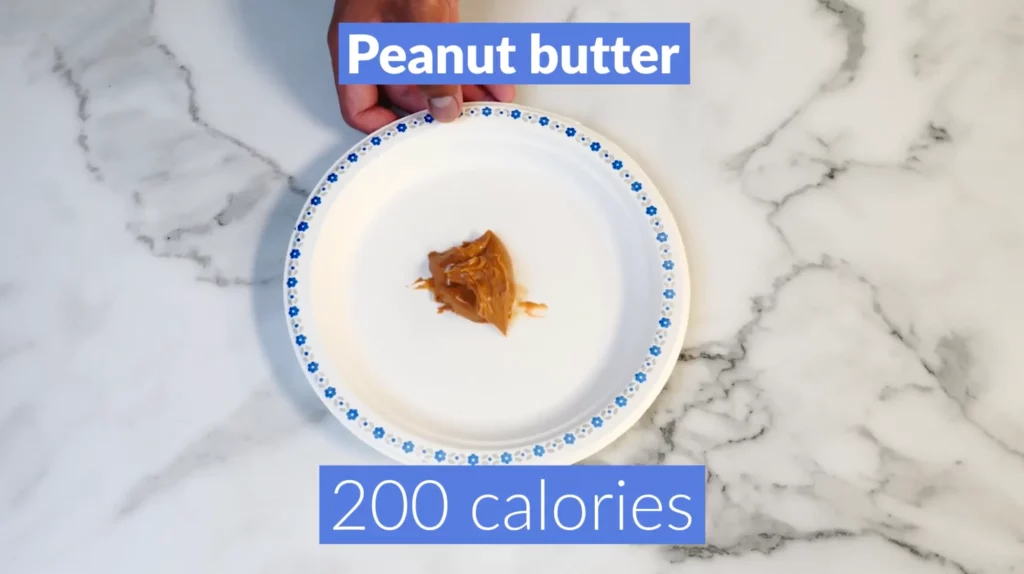
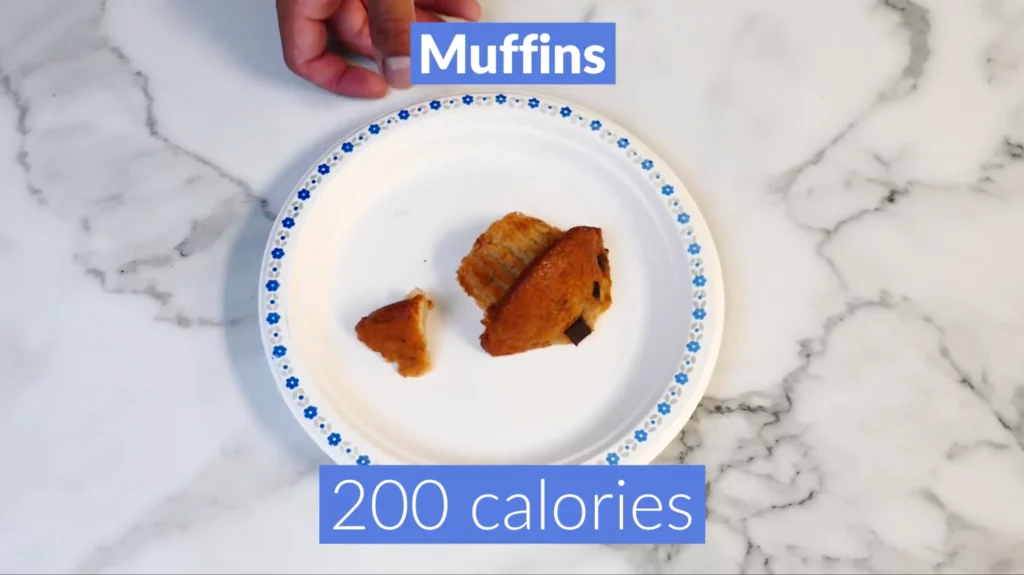
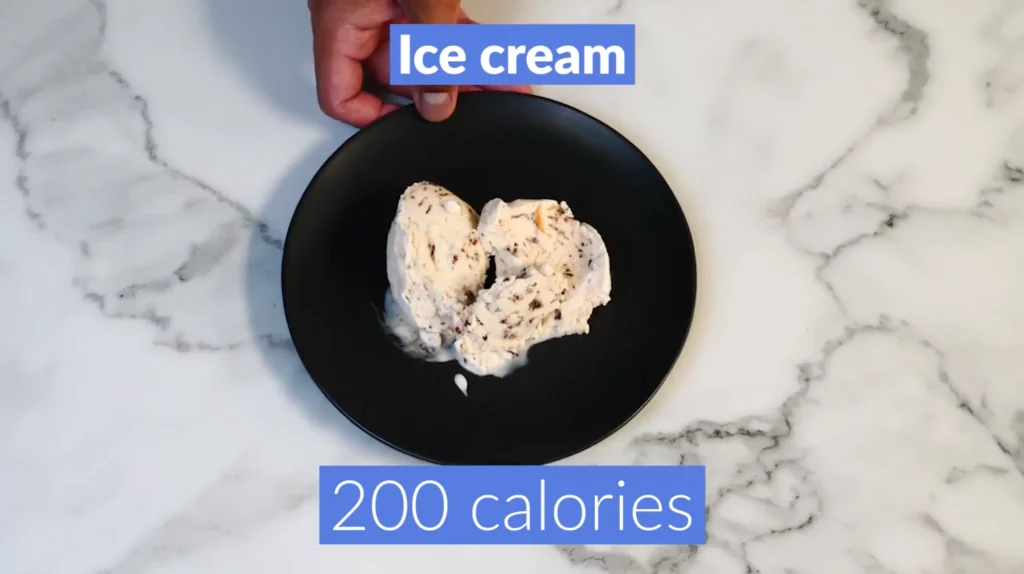
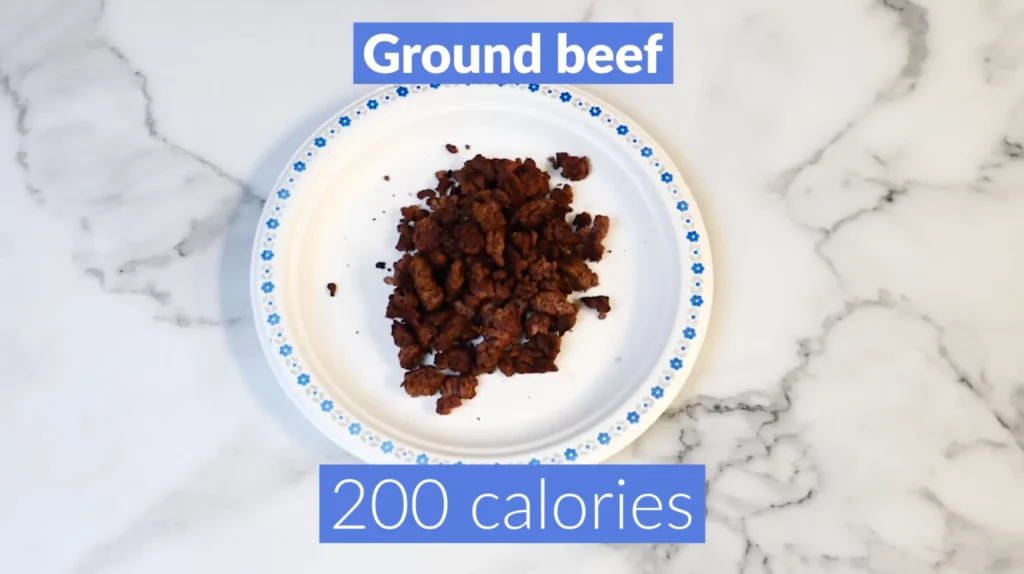
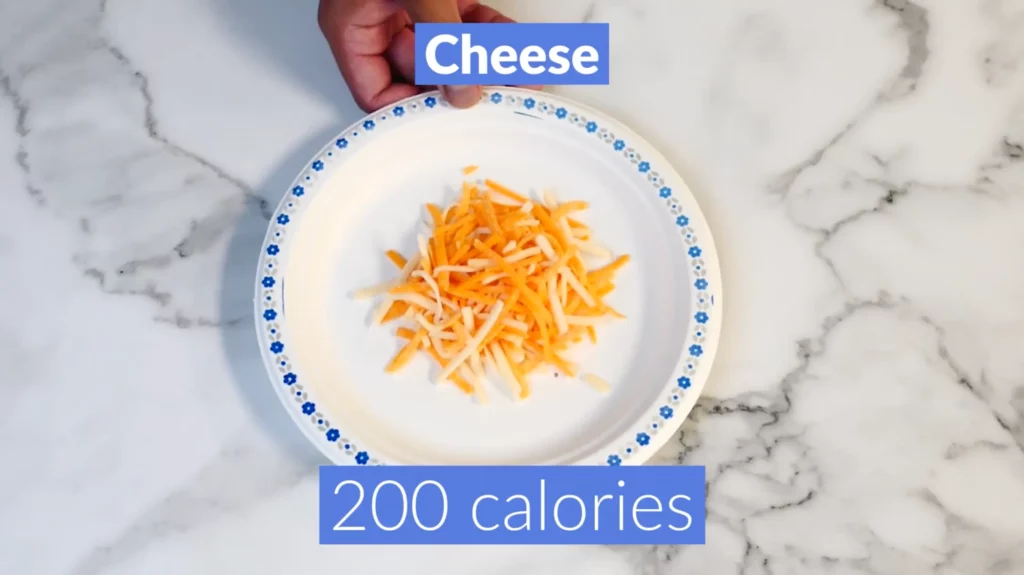
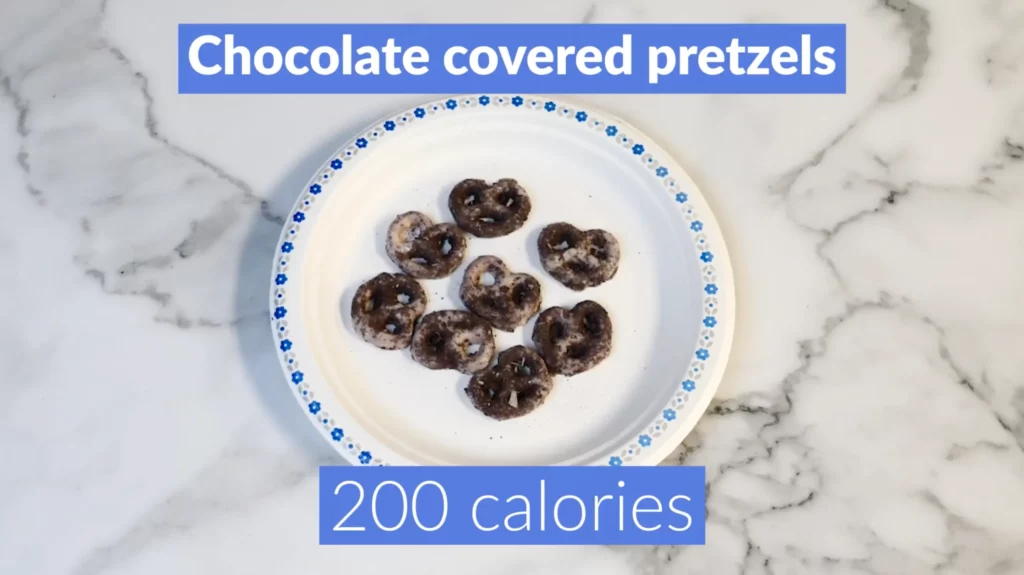
This is what makes high-calorie-density foods so easy to overeat.
But that doesn’t mean you should completely restrict yourself from them. You just want to eat less of them and instead add more low-to-moderate calorie-density foods into your diet.
For breakfast, you could swap out:
- High-sugar granola for whole-grain cereal with fruit
- 2 pieces of toast for 1 piece of toast with a side of strawberries
- Whole-fat milk or cream in your morning coffee for skim milk or cashew milk
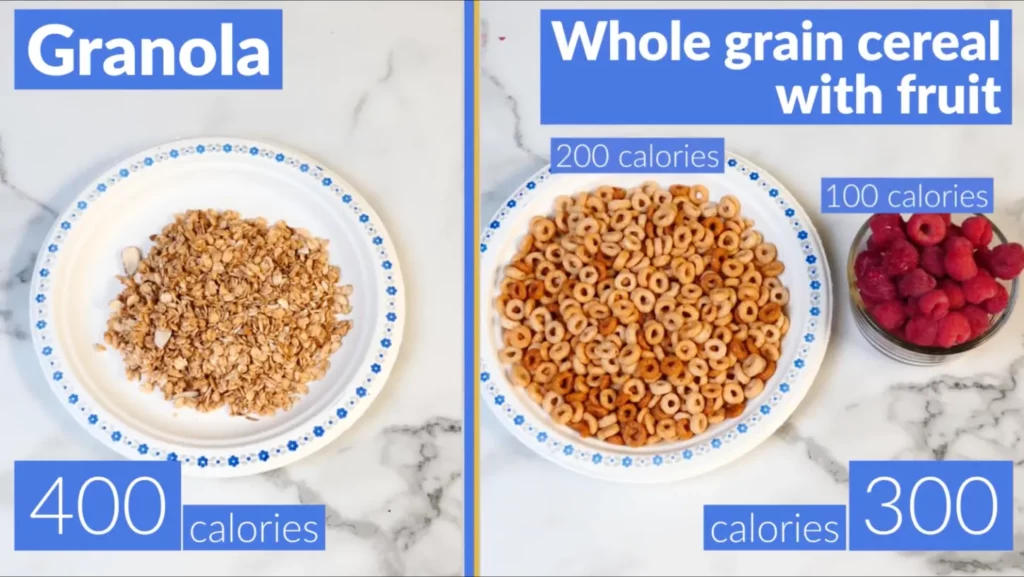
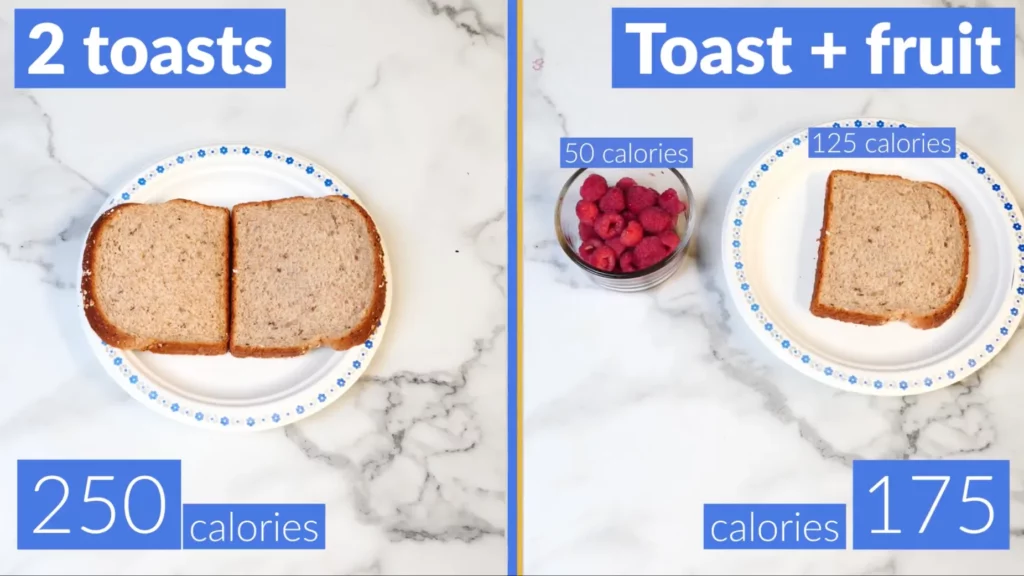
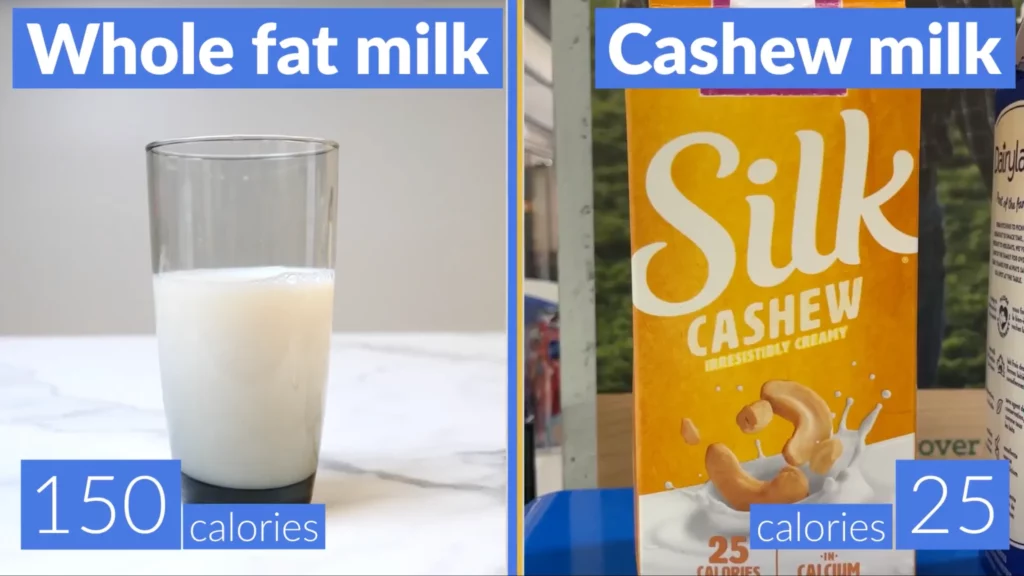
And for dinner, instead of having 2 cups of rice, have:
- 1 cup of rice and
- 1 cup of green peas or a side of vegetables
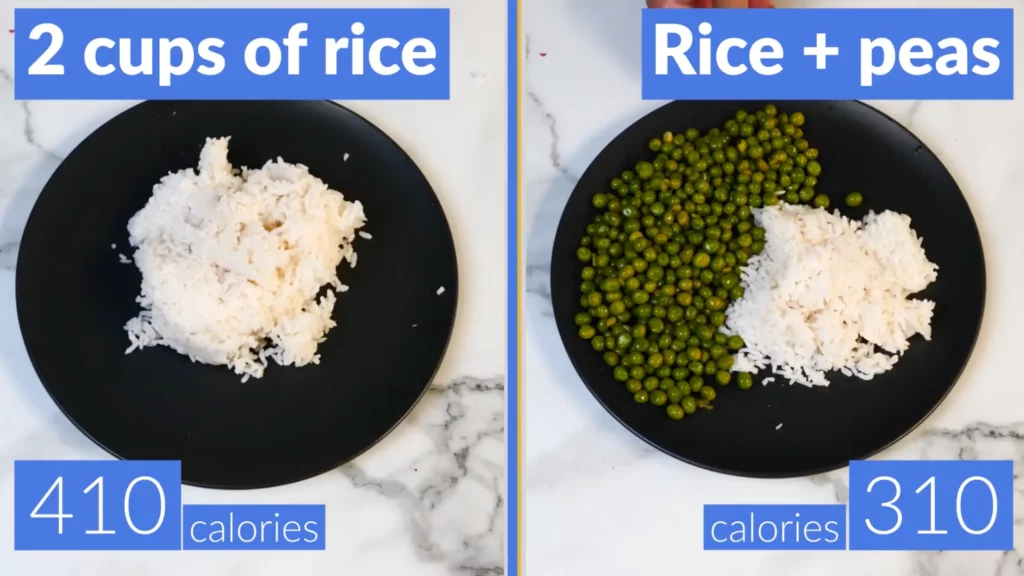
When you’re watching TV and snacking, instead of having trail mix or chips, have some fat-free popcorn. For dessert, instead of 1 cup of regular ice cream, have just half a cup with some fruit.
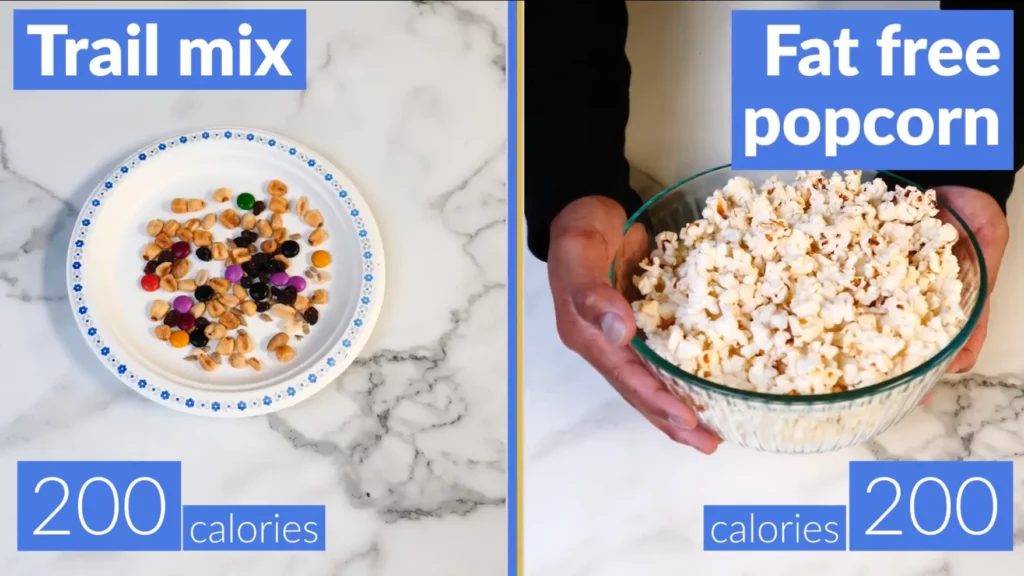
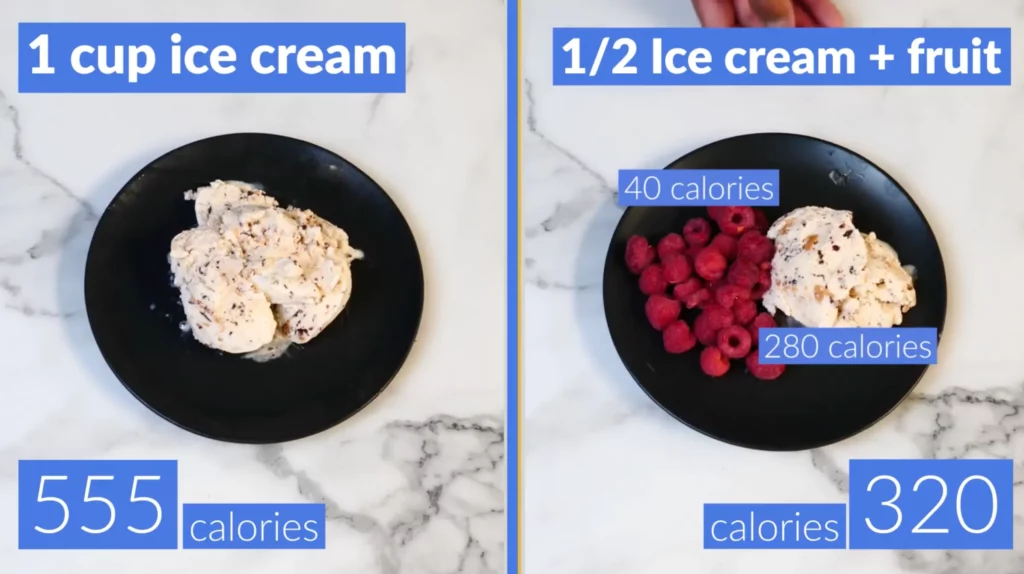
Believe me, these small changes to your diet will make it almost effortless for you to start losing fat, especially when you pair it with the second food on our list.
#2: Lean Protein
So, depending on the type of food you eat, your body will burn a certain amount of calories just to digest that food. Research suggests that for:
- Carbs (e.g., rice and potatoes): Your body uses about 5-10% of those calories for digestion.
- Fats: Much lower, between 0-3%.
- Protein: Shoots all the way up to around 15-30%.
This is what’s known as the thermic effect of food and is part of what makes our next food, lean proteins, so effective for fat loss.
One study actually tested this by having subjects live in a lab where researchers could measure how many calories they burned every day.
They put one group of subjects on a high-protein diet and two other groups on a low-protein diet.
And what did the researchers find? The subjects on the high-protein diet ended up burning about 70 calories more per day.
Another study with a similar design also found a similar result.
Now, to be honest, if you crunch the numbers, the fat loss benefit you get from this isn’t anything to get too excited about.
But the importance of having enough protein when losing fat goes far beyond this.
It’s the most important food to help you maintain or even build more muscle as you lose fat. This will not only help you look better once you get lean enough to lose your belly fat, but it also seems to correlate well with preventing fat regain after your diet is over.
But it’s important you pick the right types of protein because they’re not all created equally.
This goes back to calorie density.
You see, some protein sources contain significantly more calories relative to the amount of protein they deliver.
Typically, these are high-fat protein foods such as:
- Ground beef
- Steak
- Eggs
- Pork chop
- Sausage
Lean proteins, on the other hand, deliver significantly more protein for fewer calories. Great examples of lean protein include:
- Egg whites
- Shrimp
- Protein powder
- Low-fat greek yogurt
- Extra-lean ground beef
- Chicken breast
- Turkey
- Tofu
- White fish
You can still have the fattier protein sources in moderation.
But eating mostly leaner proteins could help you:
- Consume fewer calories and
- Potentially swap those saved "fat" calories for something else
For example, instead of having 4 whole eggs and toast, if you had 2 whole eggs with some egg whites you’d be able to add a serving of fat to your meal such as peanut butter onto the toast.
Or instead of having normal ground beef, you could have extra lean ground beef, and that’ll leave you some room to top the meal with cheese or have some dark chocolate afterward.
But choosing leaner proteins also comes with one more unique benefit for fat loss.
It has to do with the third food on our list, omega-6 PUFA.
#3: Omega-6 Polyunsaturated Fats
Alright, so remember how I recommended moderating your intake of high-fat foods because they’re so calorie dense?
While that is true, you still need about 20-30% of your calories to come from fats to support your general health and hormones.
But it seems like the specific types of fat you eat matter when it comes to belly fat.
Not the belly fat covering your abs, but the deep belly fat surrounding your organs that’s associated with serious health implications.
Illustrating this is a 2012 clinical trial that took 67 abdominally obese subjects and had them follow a 10-week diet plan designed to maintain their weight.
All subjects ate the same amount of calories and the same amount of protein, carbs, and fats.
The only difference was that:
- One group had most of their fats come from saturated fat, such as butter, while
- The other group had most of their fats come from what's known as omega-6 polyunsaturated fat (PUFA for short), which is found in foods like nuts and vegetable oils
After the 10 weeks, despite little to no changes in their body weight, the saturated fat group ended up gaining a significant amount of liver fat — which is far worse for your health compared to the belly fat covering your abs.
Whereas the polyunsaturated group, again, despite little to no changes in their body weight, ended up losing a significant amount of liver fat.
Another study conducted in 2014 found similar results, but this time, young, normal-weight individuals were put on a weight-gaining diet.
One group was fed muffins high in saturated fat whereas the other group was fed muffins high in omega-6 polyunsaturated fat. After 7 weeks, the saturated fat group gained significantly more liver fat, significantly more visceral fat, and significantly less lean mass than the PUFA group.
So to potentially avoid building up this dangerous fat in the belly and organs, try to moderate the amount of daily fats you get from saturated sources such as:
- Bacon
- Cheese
- Butter
- Cream
- Fatty meats, like pork and beef
Instead, try to have more of your fats come from foods rich in omega-6 PUFA’s such as nuts, seeds, and seed oils, as well as omega-3 PUFA’s which have been shown to have other health benefits and can be found in sources such as salmon, tuna, and flaxseed.
#4: Diet Soda
The 4th food on our list is a controversial one and was put to the test in a 2015 study, where researchers took 300 overweight individuals and had them start the same weight loss program.
The only difference was that:
- One group was assigned to drink an additional 24 oz of water every day while
- The other group had to drink that same amount — but with what the researchers called a non-nutritive sweetener, which includes diet sodas and pretty much any sugar-free drink
Here’s a graph of the one-year results.
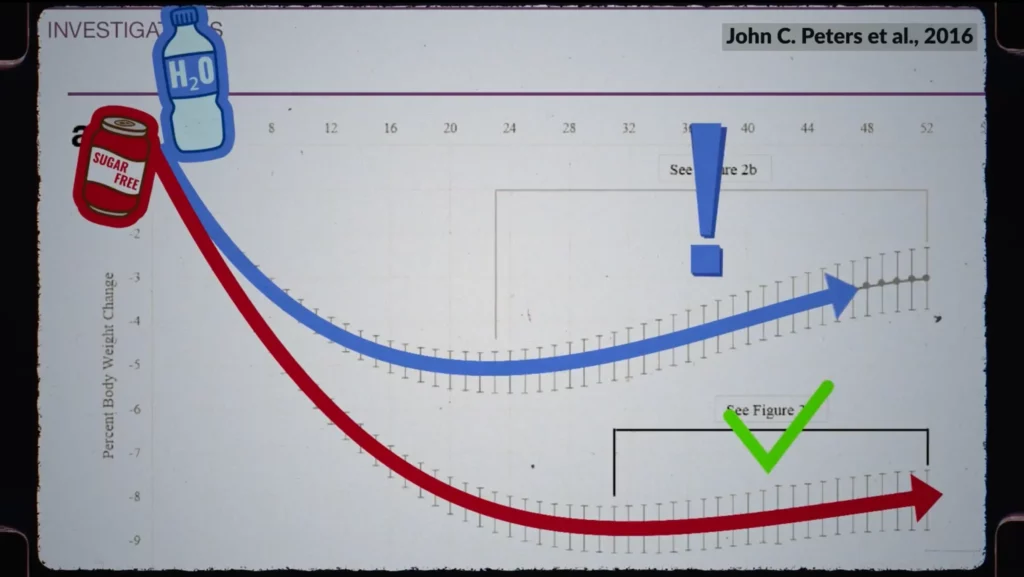
The sugar-free group not only experienced significantly greater weight loss, but they were also better able to keep that weight off for good.
So what was the reason behind this?
Well, the water group ended up reporting an increase in hunger throughout their diet whereas the group with sugar-free drinks reported no change in their hunger.
So it’s possible that in the water group, limiting access to sweet beverages may have promoted their desire to satisfy their cravings from other sources like candy and desserts.
I’ve definitely noticed this as well.
I personally always keep my fridge stocked with some kind of sugar-free drink or diet soda. And whenever a craving hits during the day or after a meal, rather than going for some candy or chocolate, oftentimes just having a sugar-free drink is all I’ll need to satisfy it.
Not to mention that if you’re someone who regularly consumes sugary drinks or sodas, then making this simple switch alone can easily save you hundreds of calories a day.
#5: Best Way To Lose Body Fat With Your Favorite Foods
So far I’ve given you a lot of great food options to lose fat.
But let’s be honest, some of the foods I mentioned won’t appeal to you. Sure, zucchini is a low-calorie dense food, and yes, egg whites are a great lean protein source, but if you don’t enjoy those foods then don’t force yourself to eat them.
The key to making your diet stick is to eat your favorite foods.
For example, here’s Matt, one of our Built With Science members who lost almost 80 lbs with our program and by eating healthy foods that he actually likes.
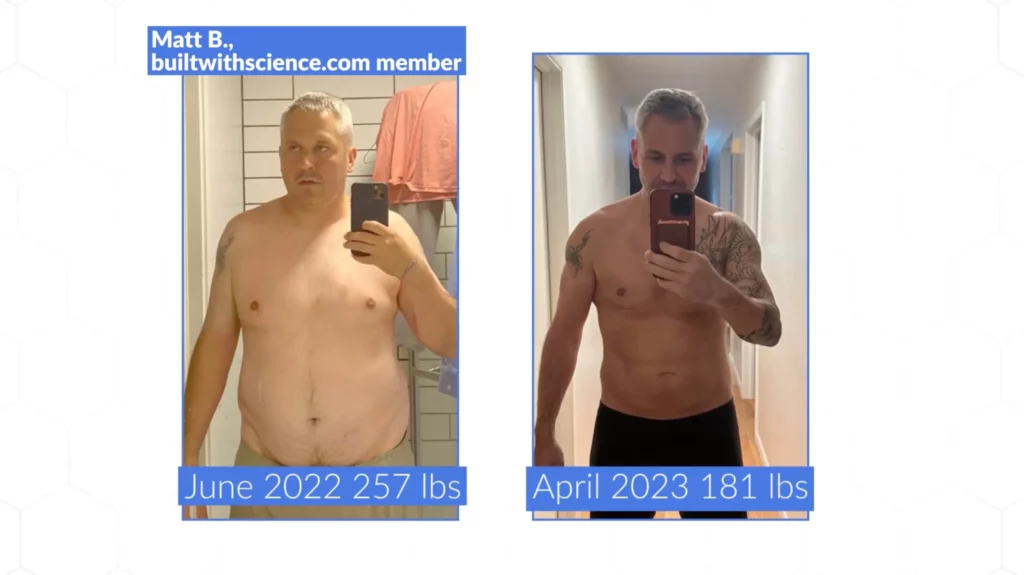
He loves mushrooms, so he eats lots of them. He also loves black beans and eggs, so he makes breakfast burritos 5x a week.
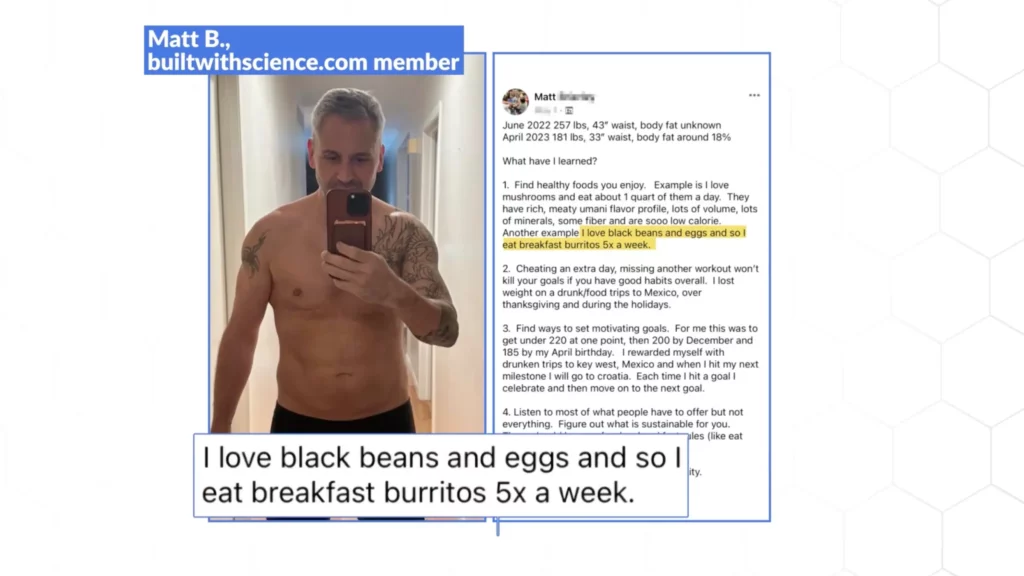
And for me personally, I love wraps, burritos, and shawarmas so I make one every day.
But I’ll incorporate what I taught you earlier by using a low-calorie wrap or tortilla, adding plenty of veggies, using a lean protein source, and then adding fats or calorie-dense condiments in moderation.
So pick a handful of your favorite foods from each of the categories we went through, add a couple of your favorite treats to have every now and then, and that’s pretty much your diet.
It’s as simple as that.
And if you want someone to take care of all the guesswork for you and create a training and diet plan full of foods you actually enjoy and can stick to, then take our free quiz to find the best science-based plan for you and your body below. It’s worked for thousands of others, and it’ll work for you:
Click the button below to take my analysis quiz to discover the best program for you:
↓
I highly recommend giving this article a read to learn about what I believe is the most underrated exercise to lose belly fat and just lose fat in general. Thanks for sticking to the end and I’ll see ya next time!

